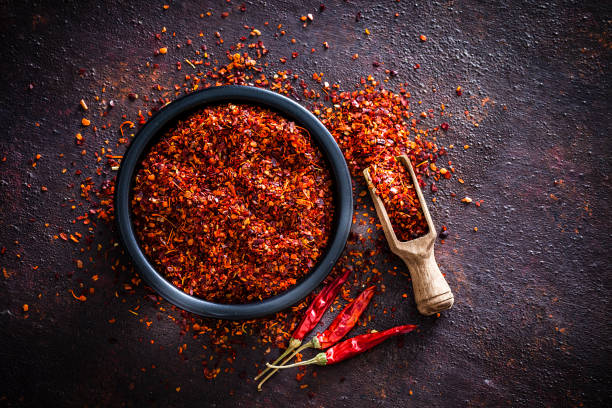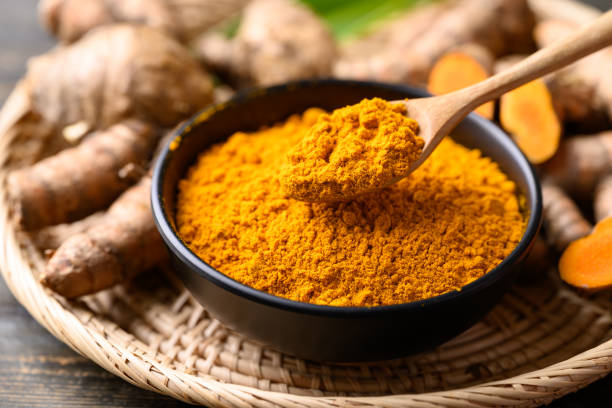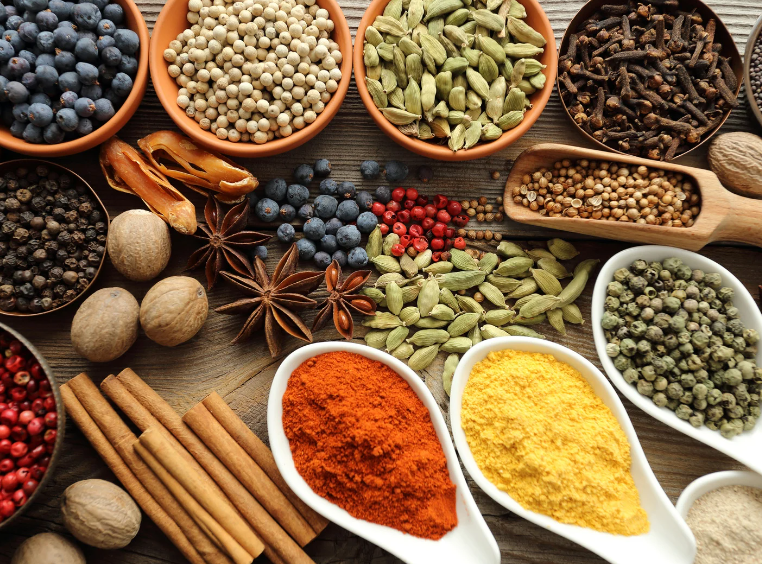What to Eat and Drink
Which Spices Are Truly Good for You?
One of the primary reasons for spices’ health advantages is their high antioxidant content. Antioxidants are molecules that help to neutralize damaging free radicals in the body, which can cause oxidative stress and chronic diseases.
Spices have been used for ages not only to flavor foods, but also because of their tremendous health benefits. In recent years, scientific research has shed light on the therapeutic characteristics of many spices, indicating their ability to benefit human health. So, what is it about spices that makes them so healthy for us?
Spices contain a variety of bioactive components, including antioxidants and anti-inflammatory agents, which contribute to their health benefits. These substances work together to protect our cells from harm, reduce inflammation, and improve general health. Furthermore, many spices contain vital vitamins, minerals, and phytochemicals that aid in a variety of body activities.
Good spices such as turmeric, cinnamon, and cloves are high in antioxidants, making them valuable friends in protecting our health.
Furthermore, spices have been shown to have anti-inflammatory properties. Chronic inflammation is the cause of numerous diseases, including heart disease, diabetes, and certain types of cancer. By including anti-inflammatory spices in our diet, we can assist reduce inflammation and lessen our risk of getting certain disorders. Spices like ginger, garlic, and cayenne pepper have been demonstrated to have strong anti-inflammatory properties.
Some spices not only have antioxidant and anti-inflammatory qualities, but they also help with digestion and intestinal health. Turmeric, for example, has been used for millennia in Ayurvedic medicine to address digestive problems. Its key ingredient, curcumin, has been shown to boost bile production, which aids with fat breakdown and digestion. Similarly, ginger has traditionally been used to treat nausea and aid digestion.

Spices with Anti-Inflammatory Properties and Their Benefits
Chronic inflammation is a prevalent underlying cause of several chronic diseases, including heart disease, diabetes, and arthritis. Fortunately, several spices have strong anti-inflammatory qualities that can help reduce inflammation and enhance general health.
Turmeric
Turmeric is one such spice, and it includes a potent component known as curcumin. Curcumin has been extensively explored for its anti-inflammatory properties, and it has been shown to suppress the action of inflammatory chemicals and enzymes in the body. Consuming turmeric on a regular basis can help combat chronic inflammation and lower the chance of acquiring inflammatory disorders.
Ginger
Ginger is another spice that is believed to have anti-inflammatory qualities. Ginger includes gingerols, which have been found to inhibit the release of inflammatory cytokines and enzymes. This makes ginger a good natural treatment for inflammatory diseases like osteoarthritis and rheumatoid arthritis. Including ginger in your meals or drinking ginger tea might help relieve pain and inflammation in the body.
Cayenne pepper
Cayenne pepper is another spice with strong anti-inflammatory effects. Its main ingredient, capsaicin, has been shown to suppress the function of NF-kB, a protein that promotes inflammation. Cayenne pepper, by inhibiting NF-kB activity, can help reduce inflammation and related effects.
Including these anti-inflammatory spices in your diet can significantly improve your general health. By lowering chronic inflammation, you can lessen your chance of acquiring numerous diseases and enhance your overall quality of life.

Spices That Aid Digestion and Promote Gut Health
Maintaining a healthy digestive tract is critical to overall well-being. Fortunately, many spices can aid digestion and promote gut health, allowing us to maximize nutrition absorption while avoiding frequent digestive disorders.
Fennel
Fennel is one example of a spice that has long been used in traditional medicine to assist digestion. Fennel seeds include chemicals that assist calm the gastrointestinal muscles, decreasing spasms and aiding easy digestion. Furthermore, fennel seeds can aid with bloating, gas, and indigestion.
Cumin
Cumin is another spice that improves digestion. It increases the synthesis of digestive enzymes, which are necessary for food breakdown and proper nutritional absorption. Cumin also contains carminative qualities, which might aid with gas and bloating. Cumin can help promote good digestion and alleviate stomach discomfort.
Mint
Mint is a pleasant herb that has been used for millennia to calm the digestive system. It contains menthol, which is antispasmodic and can help relieve indigestion symptoms including stomach cramps and bloating. Drinking mint tea or adding fresh mint leaves to your meals can help with digestive troubles.
These spices can easily be added into your everyday diet to aid digestion and enhance gut health. By optimizing your digestion, you may ensure that you get the most out of your nutrition while avoiding typical digestive issues.

Spices That Boost Metabolism and Aid in Weight Loss
If you want to lose weight, certain spices can help you do it naturally. These spices not only improve the flavor of your meals, but they also boost your metabolism, stimulate fat loss, and help control your hunger.
Cayenne pepper
One such spice is cayenne pepper, which includes the chemical capsaicin. Capsaicin has been shown to promote thermogenesis, which is the mechanism by which the body generates heat and burns calories. Furthermore, cayenne pepper has been demonstrated to suppress hunger and improve feelings of fullness, making it an ideal spice for weight loss.
Cinnamon
Cinnamon is another spice that can help you lose weight. It aids in blood sugar regulation by increasing insulin sensitivity, which can minimize blood sugar increases and lower cravings for sugary foods. Cinnamon also delays stomach emptying, allowing you to feel fuller for longer and minimizing calorie consumption.
Ginger
Ginger is recognized for its thermogenic characteristics, which means it helps boost the body’s metabolism and aid fat loss. It also reduces hunger and cravings, making it simpler to keep to a healthy diet. Adding ginger to your meals or drinking ginger tea can help you lose weight.
Incorporating these metabolism-boosting spices into your diet will help you lose weight naturally. When combined with a well-balanced diet and regular exercise, these spices can help you lose weight in a healthy and long-term way.

Spices That Support Cardiovascular Health
Taking care of your heart is critical to preserving overall health and lifespan. Fortunately, several spices have been shown to improve cardiovascular health by lowering cholesterol levels, increasing blood pressure, and preventing blood clots.
Turmeric
Turmeric once again steals the show when it comes to heart health. Curcumin, the main ingredient in turmeric, has been found to reduce LDL cholesterol levels, also known as “bad” cholesterol. It also improves the function of the endothelium, which lines the blood arteries, increasing healthy blood flow and lowering the risk of heart disease.
Cinnamon
Cinnamon has also been shown to improve cardiovascular health. It reduces blood pressure by dilating blood arteries and increasing blood flow. Furthermore, cinnamon has been demonstrated to lower LDL cholesterol and triglyceride levels, resulting in a healthier heart.
Garlic
Garlic is another spice that promotes cardiovascular health. It lowers blood pressure and cholesterol levels, which reduces the risk of heart disease. Garlic also contains antiplatelet characteristics, which means it can prevent blood clotting and lower the risk of strokes and heart attacks.
Consuming these heart-healthy spices will help you maintain good cardiovascular health. You may help your heart’s health and lower your risk of heart disease by lowering your cholesterol, improving your blood pressure, and preventing blood clotting.

Spices That Enhance Brain Function and Cognitive Health
Maintaining cognitive health is critical for a clear mind and a fulfilling life. Certain spices have been shown to increase brain function, memory, and prevent age-related cognitive decline.
Turmeric
Turmeric is one such spice that has once again demonstrated its flexibility and power. Curcumin, the main ingredient in turmeric, may pass the blood-brain barrier and has been demonstrated to have neuroprotective properties. It reduces inflammation in the brain, stimulates the creation of new neurons, and improves memory and cognition.
Rosemary
Rosemary is another spice that has long been used to improve memory and attention. It includes chemicals that protect the brain from oxidative stress and increase blood flow to the brain. Simply breathing the aroma of rosemary can improve cognitive performance and attentiveness.
Saffron
Saffron is a spice recognized for its bright color and unusual flavor, but it also contains cognitive-boosting effects. It includes chemicals that protect the brain from oxidative stress and inflammation, hence boosting memory and cognitive function. Saffron has also been shown to have antidepressant properties, supporting mental health.
Incorporating these brain-boosting spices into your diet will help you maintain cognitive health and prevent age-related cognitive decline. These spices can help you keep your mind sharp for the rest of your life by improving memory, increasing concentration, and protecting the brain from oxidative damage.
Incorporating Healthy Spices Into Your Diet
Now that you’ve learned about the great health advantages of different spices, it’s time to include them into your regular diet and enjoy their savory richness. Here are some recommendations on how to get the most out of these nutritious spices:
- Experiment with different spice blends: Mix and match spices to create unique flavor profiles for your dishes. For example, combine turmeric, cumin, and coriander for a flavorful Indian-inspired curry.
- Add spices to your morning routine: Sprinkle cinnamon or turmeric into your morning coffee, smoothie, or oatmeal for a burst of flavor and health benefits to start your day.
- Use spices as marinades and rubs: Create delicious marinades and rubs using spices like paprika, garlic, and ginger. These will not only add flavor but also tenderize and enhance the nutritional value of your meat or vegetables.
- Drink spiced tea: Brew a cup of ginger tea, cinnamon tea, or turmeric tea to warm up and enjoy the health benefits of these spices. You can also add a squeeze of lemon or honey for an extra burst of flavor.
- Sprinkle spices on your snacks: Add a sprinkle of cayenne pepper or paprika to roasted nuts or popcorn for a spicy and healthy snack option.
By incorporating these healthy spices into your daily meals, you can add a burst of flavor, enhance your well-being, and take your culinary creations to a whole new level.
Conclusion
Spices are not only delicious additions to our meals, but they are also full of health advantages. Spices provide numerous health benefits, including inflammation reduction, digestion aid, metabolism boost, and cardiovascular health support.
We can benefit from the medicinal characteristics of spices like turmeric, cinnamon, ginger, and cayenne pepper in our diet. These spices are high in antioxidants, have anti-inflammatory qualities, aid digestion, increase metabolism, promote cardiovascular health, and improve brain function.
So don’t be afraid to experiment with different spices, try new dishes, and discover the full potential of these wonderful ingredients. Spice up your meals, excite your taste senses, and feed your body; it’s time to start on a culinary adventure that will improve both your flavor palate and your health.
Trusted Health, Wellness, and Medical advice for your well-being



